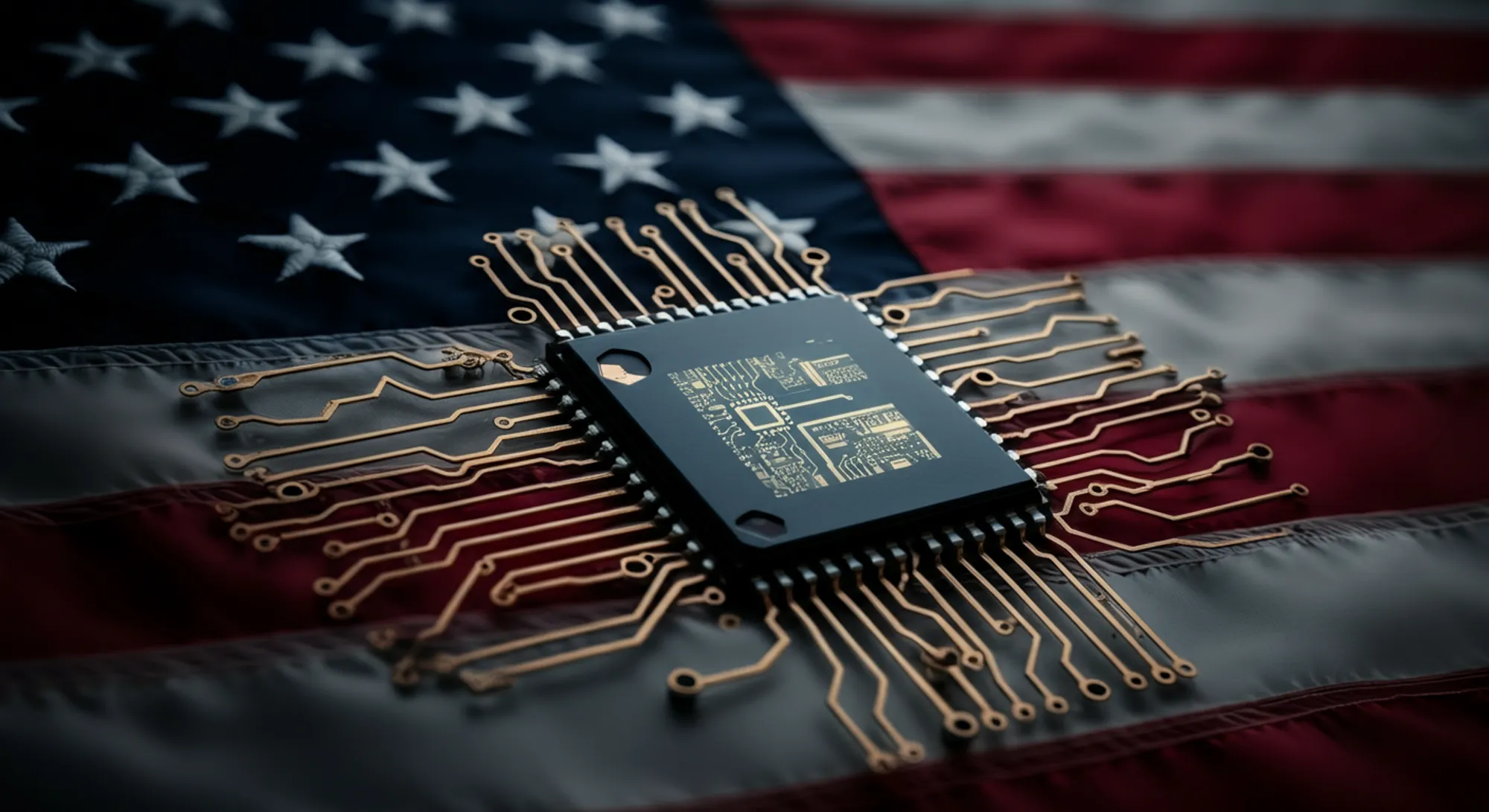US AI Chip Export Regulations and Their Business Implications

Don’t just follow the conversation—lead it.
This is an example of an automated blog using AI. Want something similar for your business? Let's talk.
We will contact you within 24 hours.
The United States’ evolving stance on artificial intelligence (AI) chip exports has stirred a global discourse, implicating international businesses and allied nations in a delicate balancing act between innovation and national security. This move signals a significant shift in global tech strategy, particularly concerning the balance of power in AI development.
Understanding the Three-Tier Export Control System
In response to concerns about technological advances falling into the hands of adversaries like China, the Biden Administration has introduced stringent export control regimes[^1^]. The new system classifies nations into three tiers, each with distinct access levels to advanced AI chips.
- Tier One comprises G7 members and select allies including Australia, Taiwan, and Ireland, enjoying unrestricted chip exports1.
- Tier Two includes over 100 countries, such as Israel and Poland, navigating capped and licensed AI chip import limits2.
- Tier Three sees complete prohibition on exports to countries like China and Russia3, intensifying the strategic chess game over AI capabilities and infrastructure.

Implications for the Global AI Landscape
For businesses operating across borders, understanding these regulations is crucial. The rationale behind these measures is to concentrate AI development within friendly nations while maintaining alignment with U.S. technological and ethical standards4. However, this layered regulatory approach might stymie growth in markets poised for AI expansion, potentially forcing companies to align closely with American technological policies or face operational hurdles.
Nvidia, a major player in the AI chip market, argues that these restrictions could undercut U.S. economic growth and global leadership in AI technologies5. Critics from various sectors express concerns about missed global opportunities and the logistical burdens of maintaining compliance with these new rules6.
National Security and Business Response
The U.S. underscores these restrictions as necessary for safeguarding technological advancements against adversaries7. Yet, entities like the Information Technology Industry Council warn that such constraints could inadvertently hinder American companies’ competitiveness in the global market8. For U.S.-based multinational corporations, navigating these complex frameworks requires agility and foresight.
To mitigate unintended impacts, the Biden administration also encourages strategically favored nations to adopt the “Validated End User” status, streamlining export processes under specified security protocols9. This approach aims to promote trust and secure partnerships while fostering AI innovation through vetted international data centers.
Impacts on AI Innovation and Strategic Alliances
For those in sectors like cloud computing and semiconductor manufacturing, adapting to these policies demands strategic pivoting, with a focus on compliance and diversification of operations. Companies inclined toward AI-driven solutions must brace for evolving geopolitical landscapes and resource allocations10.
Moreover, countries in Tier Two, especially, face a dilemma as they grapple with restrictions on computing power, which could slow AI research and data center development11. Despite this, the U.S. has provided a pathway for expansion by encouraging businesses to adhere to specific criteria, thus retaining access to advanced chips12.
Conclusion
Ultimately, the U.S. regulation on AI chip exports underscores the complexity of balancing innovation with security. Businesses involved in AI and related technologies must adapt, navigating these new export frameworks while maximizing growth opportunities in compliant regions.
NeuTalk Solutions understands these challenges, offering tailored AI and full-stack engineering solutions that ensure businesses not only adhere to current regulations but also thrive within them. Leverage our expertise to maintain a robust AI-powered business presence, reshaping how you engage with technology on a global scale.
Footnotes
https://www.bloomberg.com/news/articles/2025-01-08/biden-to-further-limit-nvidia-amd-ai-chip-exports-in-final-push ↩
https://www.mobileworldlive.com/nvidia/nvidia-slams-us-plan-to-curb-ai-chip-exports/ ↩
https://www.investors.com/news/technology/nvidia-stock-biden-nvidia-amd-ai-chip-export-curbs/ ↩
https://fortune.com/2025/01/10/biden-pushes-to-further-limit-ai-chip-exports/ ↩
https://www.nytimes.com/2025/01/09/business/economy/biden-ai-chips-rules.html ↩
https://news.az/news/biden-to-target-nvidia-ai-chip-exports-with-new-restrictions-in-last-push ↩
https://www.thestar.com.my/news/nation/2025/01/13/malaysia-braces-for-us-ai-chip-export-restrictions ↩
https://www.networkworld.com/article/3543307/us-modifies-ai-chip-export-rules-boosting-middle-east-access.html ↩
https://www.newsbytesapp.com/news/science/us-urges-nvidia-to-probe-ai-chips-export-to-china/story ↩
